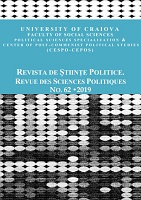The Tale of Two Cities: Engendering Urbanity in Romania after Communism
The Tale of Two Cities: Engendering Urbanity in Romania after Communism
Author(s): Elena Banciu, Iulia AnghelSubject(s): Gender Studies, Politics and society, Studies in violence and power, Rural and urban sociology, Ethnic Minorities Studies
Published by: Editura Universitaria Craiova
Keywords: engendering urbanity; post-communism; Romania; women’s narratives; fragmented modernity;
Summary/Abstract: The end of communism and the abolishment of egalitarian policies upon use of public spaces challenged women’s visibility, autonomy and emancipation in most of the transitional playgrounds. Mythology of urban moral corruption fostered also millennialist echoes, transitional societies confronting with new formulas of foundational violence, targeting women and minority groups. The article presents the preliminary findings of an extended research project, dedicated to the engendering phenomena in post-communist Bucharest, following topics as: mechanisms for spatial production of gender discrimination, recrudescence of oppressive gender spatiality (forbidden spaces vs asylum spaces, M. Foucault) or role of semio-spatial devices (G. Sonesson) as squares and boulevards, in reinforcing gender borders.
Journal: Revista de Științe Politice. Revue des Sciences Politiques
- Issue Year: 2019
- Issue No: 62
- Page Range: 33-44
- Page Count: 12
- Language: English

